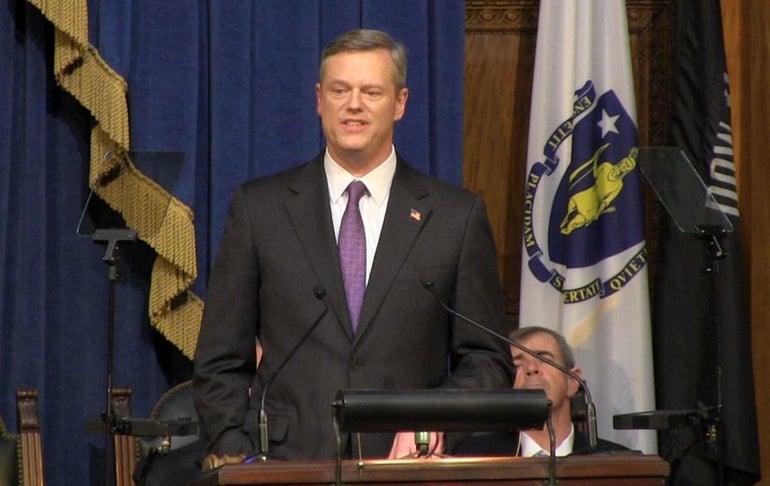Companies that do not offer their employees health insurance would pay a $2,000 annual assessment per full-time worker to the state under a plan Gov. Charlie Baker plans to offer later this month to blunt the impact of escalating, enrollment-driven costs in the state’s Medicaid program, the State House News Service has learned.
The proposal – the bulk of which is expected to be filed within the governor’s budget due on Jan. 25 – would also impose growth caps on the rates health providers can charge for medical services in an effort to control the cost of care in the commercial market and make it more affordable for employers.
Both ideas come as the state is grappling with questions about how to control growth in health care costs in the public and private markets and as enrollment in MassHealth has reached an all-time high – a projected 1.93 million people in fiscal 2017 – putting unsustainable pressure on state finances.
Provider price caps in the commercial market are also part of the administration’s plans, according to officials, as a cost control measure designed to make insurance plans more affordable for employers and employees and to discourage avoidable enrollment in MassHealth.
The employer assessment, which would bring an estimated $300 million into state coffers, represents a revival of the so-called fair share contribution plan that was a linchpin of the 2006 universal health care law in Massachusetts before it was repealed to make way for the federal Affordable Care Act.
The details of Baker’s multi-part plan to address the costs that come with surging enrollment in MassHealth despite low unemployment, population growth, and the highest rate of insured residents in the country were laid out in an internal policy planning document obtained by the News Service. The contents of the 15-page document were subsequently confirmed by the administration.
The state employer mandate was repealed in 2013 as lawmakers and former Gov. Deval Patrick worked to bring Massachusetts into compliance with the Affordable Care Act, and a parallel federal mandate that would have fined employers with over 50 employees that did not offer insurance has never gone into effect.
The expansion of insurance subsidies under the ACA has also led to an increase in full-time workers choosing MassHealth over employer-sponsored coverage.
“The unintended consequences of Massachusetts’ compliance with the Affordable Care Act are forcing taxpayers to cover the cost of a growing number of employed individuals’ healthcare as these workers increasingly move to the publicly subsidized healthcare system. To protect taxpayers from this growing problem, the administration is proposing reforms aimed at maintaining MassHealth’s sustainability, addressing the affordability of health care, and increasing the state’s flexibility in ACA implementation, while also reducing administrative burdens on employers, and reintroducing an employer contribution requirement for employers with over 10 employees,” Tim Buckley, senior advisor to Baker, said in a statement to the News Service.

